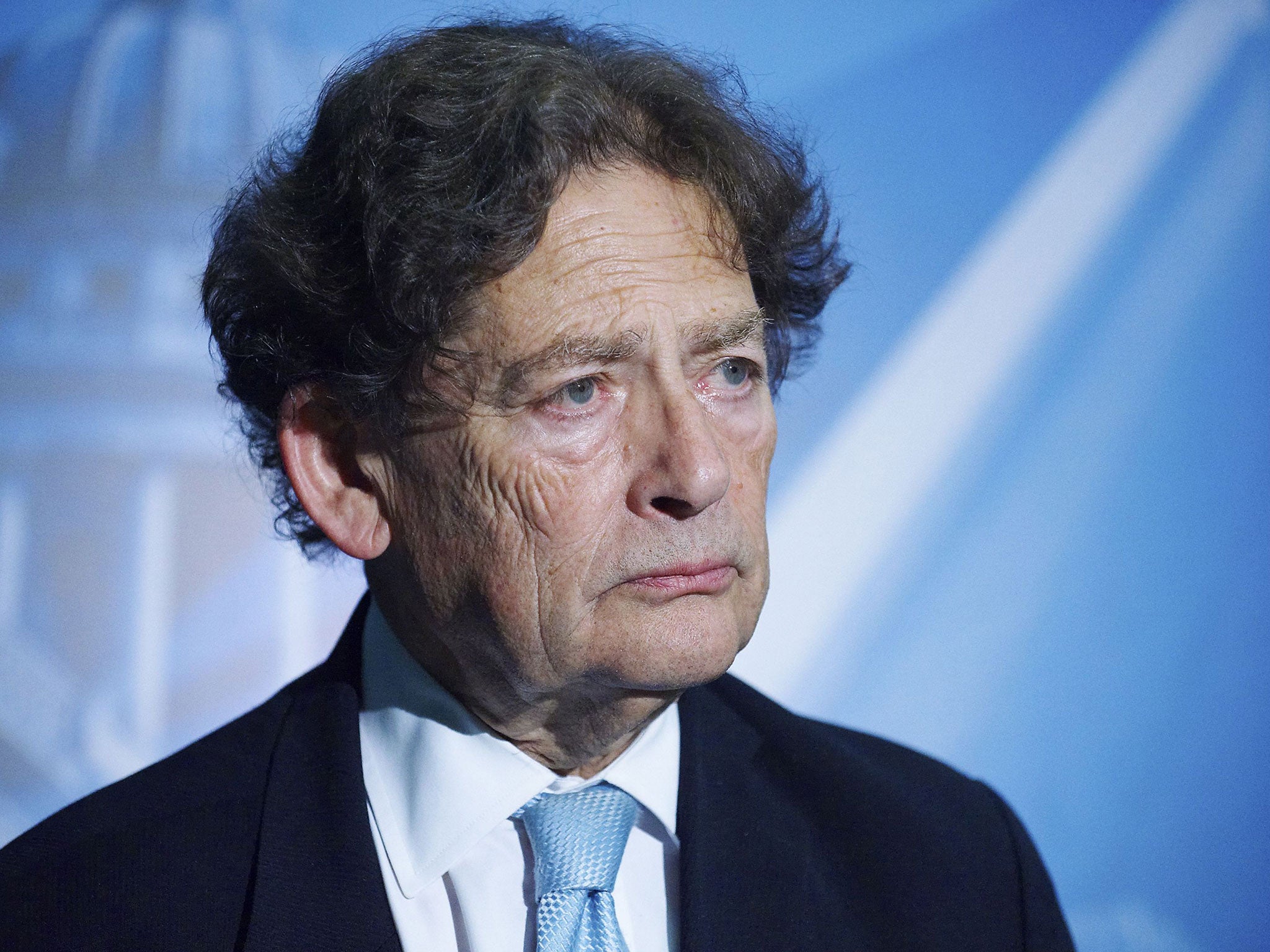Exclusive: Today Programme criticised for giving platform to climate sceptic Lord Lawson
Lord Lawson was given undue prominence, BBC complaints unit rules

Your support helps us to tell the story
From reproductive rights to climate change to Big Tech, The Independent is on the ground when the story is developing. Whether it's investigating the financials of Elon Musk's pro-Trump PAC or producing our latest documentary, 'The A Word', which shines a light on the American women fighting for reproductive rights, we know how important it is to parse out the facts from the messaging.
At such a critical moment in US history, we need reporters on the ground. Your donation allows us to keep sending journalists to speak to both sides of the story.
The Independent is trusted by Americans across the entire political spectrum. And unlike many other quality news outlets, we choose not to lock Americans out of our reporting and analysis with paywalls. We believe quality journalism should be available to everyone, paid for by those who can afford it.
Your support makes all the difference.The BBC Radio 4 Today programme has been rebuked for giving undue prominence to the climate change sceptic Lord Lawson, The Independent can reveal.
A complaint has been upheld against the news programme over a February edition in which Lord Lawson, the former Chancellor of the Exchequer, appeared alongside the respected scientist Sir Brian Hoskins, director of the Grantham Institute for Climate Change at Imperial College, London.
During the programme Lord Lawson, the founder of the Global Warming Policy Foundation (GWPF), repeatedly argued that “nobody knows” about the extent of climate change and that 2013 was “unusually quiet” for tropical storms. The debate provoked a flurry of complaints to the BBC, including one from Chit Chong, a low-energy expert based in Dorset, which has been upheld by the BBC’s Editorial Complaints Unit.
The finding follows a ruling earlier this week from the BBC Trust, which partly upheld a complaint against Radio 4’s The World at One for the platform it gave to the Australian climate change sceptic Bob Carter in September.
In an apology to Mr Chong over his complaint about the Lord Lawson debate, the head of the BBC’s Editorial Complaints Unit Fraser Steel said “minority opinions and sceptical views should not be treated as if it were on an equal footing with the scientific consensus”.
He went on: “As you have pointed out, Lord Lawson’s views are not supported by the evidence from computer modelling and scientific research and I don’t believe this was made sufficiently clear to the audience.”
Mr Steel said listeners had not been properly informed that Lord Lawson had a minority view. “I do not believe it was made sufficiently clear that Lord Lawson’s views on climate change are not supported by the majority of climate scientists, and should not be regarded as carrying equal weight to those of experts such as Sir Brian Hoskins.”
In a response to Mr Chong, the former editor of Today Ceri Thomas defended the programme’s decision to give air time to Lord Lawson and said he had been the first climate change sceptic to speak on the programme in six weeks of floods. He said that the former Chancellor was “well-qualified to comment on the economic arguments, which are a legitimate area for debate”.
But he admitted: “We do accept that we could have offered a clearer description of the sceptical position taken by Lord Lawson and the GWPF in the introduction. That would have clarified in the audience’s minds the ideological background to the arguments.”
Mr Chong told The Independent: “The programme descended into Nigel Lawson saying there was no proof and it was all a conspiracy. It gave the impression that there’s still debate about climate change. The BBC has the whole idea of balance wrong – in seeking balance they are creating imbalance and promoting untruths.”
In a 2011 review of the BBC’s coverage, the BBC Trust concluded that the organisation should avoid trying to achieve a “false balance” between well-established fact and opinion.
A BBC spokesman said: “The BBC is committed to impartial and balanced coverage of climate change. We accept that there is broad scientific agreement on the issue and reflect this accordingly. Across our programmes the number of scientists and academics who support the mainstream view far outweighs those who disagree with it.”
Join our commenting forum
Join thought-provoking conversations, follow other Independent readers and see their replies
Comments